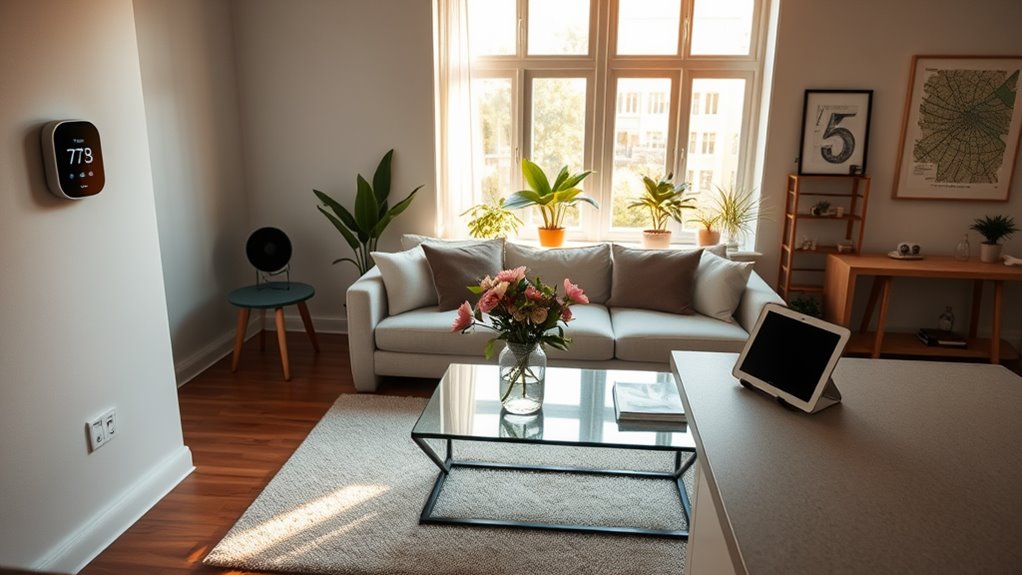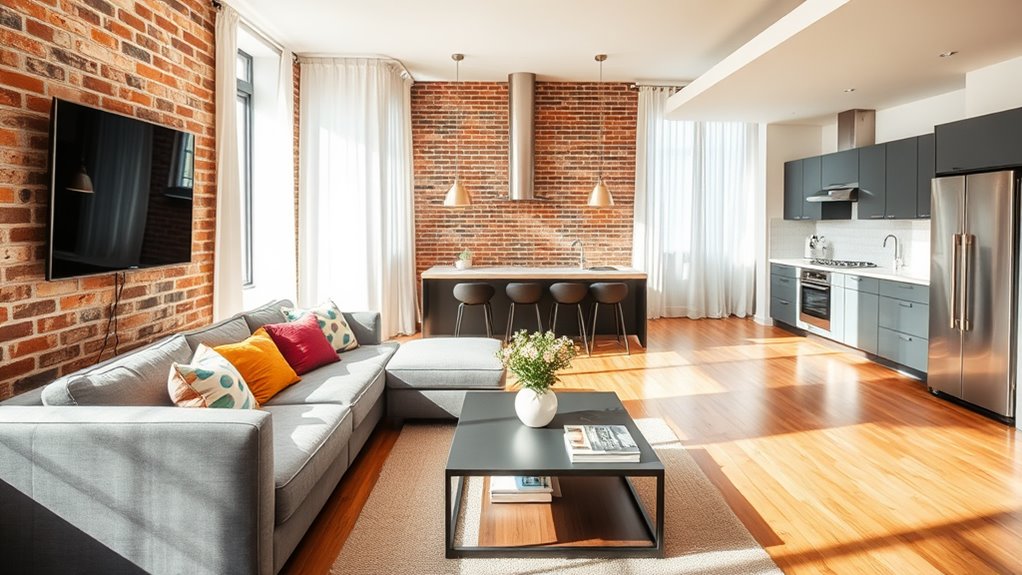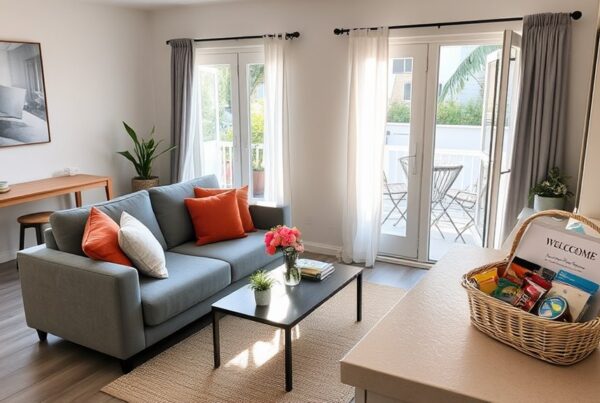Before converting a rental into an Airbnb, check local regulations to verify compliance with licensing, zoning, and occupancy rules. Assess the financial feasibility by calculating potential income and expenses, factoring in seasonal demand and risks like property damage. Optimize your space with essentials and thoughtful touches to enhance guest experience. Build trust with your landlord by maintaining transparency and reliability. Streamline operations with clear communication and automated tools. The next steps will further refine your strategy.
Key Takeaways
- Verify local regulations and ensure compliance with licensing, zoning, and occupancy limits for short-term rentals.
- Calculate financial feasibility by analyzing potential income, operating costs, and seasonal demand fluctuations.
- Optimize your property with essentials, high-quality Wi-Fi, and appealing decor to enhance guest experience.
- Communicate transparently with your landlord and address concerns to build trust and obtain necessary permissions.
- Implement effective guest management with clear house rules, personalized touches, and automated systems for efficiency.
Check Local Regulations and Compliance
Before you list your rental as an Airbnb, you’ll need to prioritize checking local regulations and guaranteeing compliance. Many cities have specific rules governing short-term rentals, including licensing requirements, occupancy limits, and zoning restrictions. For example, in San Francisco, hosts must register their rental property and pay a 14% short-term occupancy tax. These local regulations can vary widely, so it’s crucial to consult your city’s planning department or zoning board to confirm what’s allowed in your area. Non-compliance can lead to hefty fines or legal issues, which could jeopardize your rental business. Stay proactive by keeping up with any changes in the laws affecting short-term rentals. Joining local Airbnb host groups or online forums can also provide valuable insights and updates. Understanding and adhering to these rules from the start will help you avoid setbacks and guarantee your rental property operates smoothly.
Evaluate Financial Feasibility and Risks
Once you’ve navigated local regulations, it’s time to assess the financial feasibility and risks of converting your rental into an Airbnb. Start by calculating your net operating income (NOI), subtracting operating expenses like cleaning, utilities, and supplies from potential rental income. While Airbnb can generate higher revenue than traditional rentals, it also increases management and operational costs, impacting your cash flow. Seasonal demand plays a critical role; properties near tourist hotspots may thrive during peak seasons but could face lower occupancy elsewhere. Additionally, consider how local rules, such as rental day limits or permit requirements, could affect your earnings. Evaluate your risks carefully, including property damage and wear from frequent turnover, as hosting more Airbnb guests can lead to higher maintenance needs. Medium-term rentals often face less competition and offer stable income, making them an appealing alternative. Balancing these factors guarantees you make an informed decision about your property’s short-term rental potential.
Optimize Your Property for Guest Experience

To maximize your property’s appeal and secure a memorable stay, focus on creating an experience that meets and exceeds guest expectations. As an Airbnb Host, optimizing your space guarantees positive reviews, repeat bookings, and the ability to make money. Start by equipping your property with essentials like clean linens, toiletries, and kitchen basics. Choose a neutral, minimalist decor to appeal to a broad audience and make the space feel inviting. Prioritize high-quality Wi-Fi and provide entertainment options like streaming services to cater to modern travelers. Maintain impeccable cleanliness through regular deep cleaning and inspections. Add thoughtful touches, such as personalized welcome notes or local guidebooks, to enhance the guest experience. Consider using an investment calculator to analyze potential returns and tailor your guest experience strategies accordingly.
- Crisp white linens and fluffy towels on a perfectly made bed.
- A sleek, clutter-free living room with soft lighting creating a cozy vibe.
- A high-speed router next to a smart TV with apps ready to stream.
- A handwritten note welcoming guests to their home-away-from-home.
Manage Operations and Guest Interactions Effectively

When converting a rental into an Airbnb, managing operations and guest interactions effectively is essential for ensuring smooth and successful hosting. Streamline your processes by screening guests carefully to minimize risks and maximize satisfaction. Maintain clear, consistent communication before, during, and after their stay to build trust and encourage positive reviews. Implement detailed house rules to set expectations and avoid misunderstandings.
- A handwritten welcome note with local recommendations adds personalized touches that delight guests.
- Quick responses to inquiries show professionalism and strengthen guest interactions.
- Regularly updating your space based on guest feedback fosters a better experience and boosts your passive income potential.
- Automated check-in systems simplify operations and enhance convenience for both you and your guests.
- Utilizing long-term rental CRM systems can further enhance efficiency by integrating tenant management and payment automation.
Conclusion
Before converting your rental into an Airbnb, guarantee you’re compliant with local laws, evaluate financial risks, and optimize your space for guests. Communication with your landlord is key to building trust. Effective management guarantees smooth operations—did you know hosts who respond within an hour earn 20% more in bookings? Strategize every step to maximize returns and create a standout experience. With the right approach, your rental can thrive as a profitable Airbnb.




